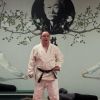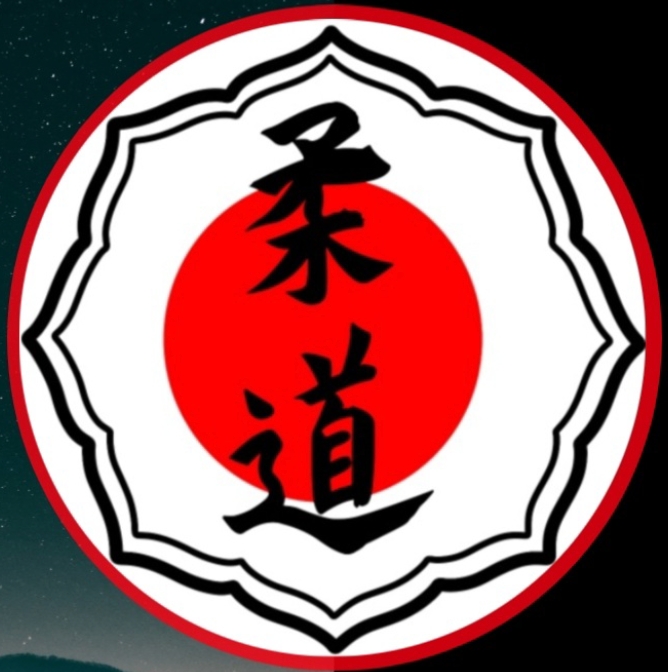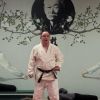Beginner and kids class
6 - 7:30pmBeginner and kids class
 Mark Moore
Mark Moore
 Travis Humburg
Mark, Travis
Travis Humburg
Mark, Travis
Judo is a Japanese martial art where throws, holds, and grappling techniques are used to subdue an opponent. You'll gain physical strength, flexibility, mental discipline, and increased self-confidence from practicing judo.

Whether you're just starting your fitness journey or looking to enhance your routine-, Hyland Hills Judo provides a supportive and motivating environment.
Our team is dedicated to helping you achieve your personal goals, ensuring you have the best experience possible.
Hyland Hills Judo was originally established under The Westminster Judo Club in 1968 by Oscar D. Pate With the 2 Pate Children and their 4 friends. The Original Classes were held in the Pate basement on a 4' by 9' mat.
After only a few months the classes were moved over to the local school gymnasium. The Program steadily grew and at its peak with over 150 active students. A major part of the growth of the program was not only the athletes but also the programs association with the Hyland Hills Recreation district.
The school Competed in Numerous local tournaments, Several out of state tournaments, and the national tournaments of the time. This provided the student Year-round competition.
The programs head instructor was Oscar D. Pate with Mike Zakroff, Dennis Mercer, Bob Wyatt, and Terry Meyer, as assistants.
Benefits of Judo
Judo is one of the best martial arts to learn for both children and adults, here are some of the most notable benefits of judo that you may want to consider as reasons why you should start training judo.
Great for Self Defense
It might not be a popular opinion, but I think if you want to learn a martial art for all the benefits it offers, you might as well pick one that’s great for self defense.
Otherwise what’s the point of picking a martial art specifically, as a lot of other sports and physical activities also offer similar benefits.
But I can also understand and appreciate that some people simply enjoy martial arts training, without the added benefit of physical strength and self defense.
Judo is one of the best martial arts for self defense, period. Especially for those who don’t want to inflict damage with strikes. As judo is great for controlling, subduing or even making someone unconscious if necessary, with throws, locks and choke holds.
Improves Physical Health and Fitness
It may not seem like it looking in from the outside, as you won’t see powerful punches and kicks thrown, but judo training is one of the toughest there is. Even just the warm up exercises for judo can easily make you breath heavy and sweat buckets.
Randori, also known as free sparring, is part of judo training where you practice your techniques against fully resisting opponents. This is easily one of the toughest workouts I’ve ever gone through.
Similar to wrestling sparring, the constant engagement of your core and muscles is super taxing on your body. Just imagine trying to throw someone that’s 200 lbs, and defending against someone trying to throw you for 30 to 45 minutes.
It’s a different type of workout compared to the likes of HITT, but it sure is one hell of a workout!
Develops Core, Balance and Overall Strength
As mentioned above, the constant engagement of core and muscles in judo training, greatly improves your core stability, balance, both overall and dynamic strength.
I often hear people call it judo strength, it’s the functional strength you gain from years of judo training, most notably your grip and pulling strength.
Teaches Discipline and Respect
One of the differences judo training offers from other sports and physical activities, is the built in discipline and respect culture in the art.
In fact, when Dr. Jigoro Kano first developed judo, it was meant to serve as a physical, mental and moral pedagogy. Respect and discipline has been part of judo since the beginning of time, and it’s not hard to see if you ever observed a judo training session.
You bow before entering and leaving the dojo, bow before and after a contest. My judo instructor always had a quick talk regarding respect and discipline before the training even started.
Builds Self Confidence and Belief
Consistent judo training not only builds self confidence, but also instills self belief. It’s done partly through hard training, where you feel a sense of achievement by getting good at certain moves or reaching the targets you set for yourself.
Another way it helps with self confidence is knowing you are able to handle yourself, and others if required when things go out of hand. This in turn will raise self awareness, which in turn will help you avoid potential sticky situations.
Helps to Develop Determination and Perseverance
In judo training and competition, it requires a great deal of determination and perseverance to get out of pins, escaping bad positions or defending chokes and locks.
Equally it takes the same determination and perseverance trying to throw, pin your opponent, or trying to keep you advantageous position and getting that submission.
This is one of the values that will help you in real life immensely, as you would have learned that nothing comes easy in life, you must work hard for the things you want. There’ll be blocks and even failures, but you’ll keep your head down and work through it.
Relieves Stress and Improves Mental Health
I feel like in today’s society, we don’t talk enough about stress and mental health. There has always been stigma on mental health, I mean it’s easier to admit you’re an alcoholic than admitting you have mental health issues.
Regular judo training and exercise help release a chemical called endorphins in your body. These endorphins trigger positive feelings in your body, leaving you relaxed both in the mind and body, accompanied by a positive and passionate outlook on life.
Another way to look at this, is by focusing on getting better at judo, setting goals you want to achieve in judo, it helps take your mind off things that stress you out.
1. Belts and Ranking:
Belts are a great way to help children track their progress and motivate them to strive higher. Belts and ranking may help build the child’s confidence and their desire to succeed. In many cases the first belt promotion can be attained in few weeks and when children obtain that first belt, it shows them that with the right motivation, they can succeed.
2. Self-Confidence:
As children become more skillful their confidence gets increased significantly. They become more self-assured and confident.
3. Exercise:
Class will often be comprised of warm-up calisthenics, teaching and practicing of moves. The warm up and practice include the bulk of the time, and for that time your child will be constantly on the go. The workout each child gets will not only assist in the natural development of his/her muscles, but also help them build stronger Cardio-Vascular systems.
4. Emphasis on Individual Achievement within a positive peer group setting:
In judo, each child’s success is based on his or her own individual qualities. Knowing that their own ambition and hard work will drive them to succeed, they will be motivated to follow their dreams. Also, judo is one of the few sports that individuals can only improve through the positive interaction and training with others.
5. Discipline:
There is constant repetition in drills and practices with emphasis on details and rhythm. Moves are practiced and repeatedly. This instruction instills the benefits of frequent practice, and the patience in self- development to achieve a goal. Through this process, children are taught to respect one another, their opponents and colleagues, and how to play games fair and square.
6. Equity:
Many parents consider martial arts for their sons, not nearly as many would consider it for their daughters. However, judo is one of the few sports where both boys and girls can play together. In fact, female judo players in the United States tend to have greater competitive success internationally than their male counterparts.
7. Respect for Strength:
A question parents often have when they send their kids to judo class is: “Is my child going to use this to hurt others?” Although this is a legitimate concern, it is always addressed early by instructors who remind students that the techniques they learn in the dojo stay in the dojo and should not be used to intimidate people. As children learn the ropes, they will learn to respect their newfound strength and techniques.
The Judo Moral Code is a set of ethics created by the sport’s founder Jigoro Kano. He believed they were vital in the development of judo players and individuals both on and off the mat.
The code itself is made up of 8 parts:
Courtesy, Courage, Friendship, Honesty, Honor, Modesty, Respect, Self-Control
Judo is a tremendous and dynamic combat sport that demands both physical prowess and great mental discipline. From a standing position, it involves techniques that allow you to lift and throw your opponents onto their backs. On the ground, it includes techniques that allow you to pin your opponent’s down to the ground, control them, and apply various chokeholds or joint locks until submission.
The practice of judo promotes teamwork, leadership and self-confidence; it can also help prevent issues such as bullying, harassment, aggression and discrimination. Judo develops discipline, manners, punctuality, strength, stamina, perseverance, tenacity, and toughness. Judo builds healthy and strong muscles and improves cardio.
The word judo consists of two Japanese characters, ju, which means "gentle," and do, which means "the way." Judo, therefore, literally means the way of gentleness.
But, beyond the development of physical prowess and athletic ability, judo students learn much more. They learn how to control their feelings, emotions, and impulses though the judo moral code. They learn about values of perseverance, respect, loyalty, and discipline. Through their experience, they learn about politeness, modesty, and many other wonderful values that contribute to their development as successful citizens of society.
Absolutely Not!
Yes we love to see our Judoka compete, but this is not the only reason to practice judo.
 Mark Moore
Mark Moore
 Travis Humburg
Mark, Travis
Travis Humburg
Mark, Travis
 Mark Moore
Mark Moore
 Travis Humburg
Mark, Travis
Travis Humburg
Mark, Travis
We look forward to seeing you soon!
Please let us know ahead of time if you are not able to make your scheduled time.
You are now on the waitlist. If a spot opens up we will notify you via Email.